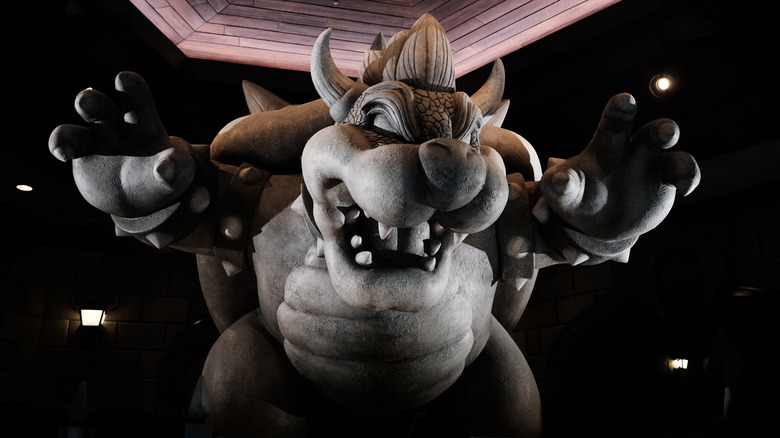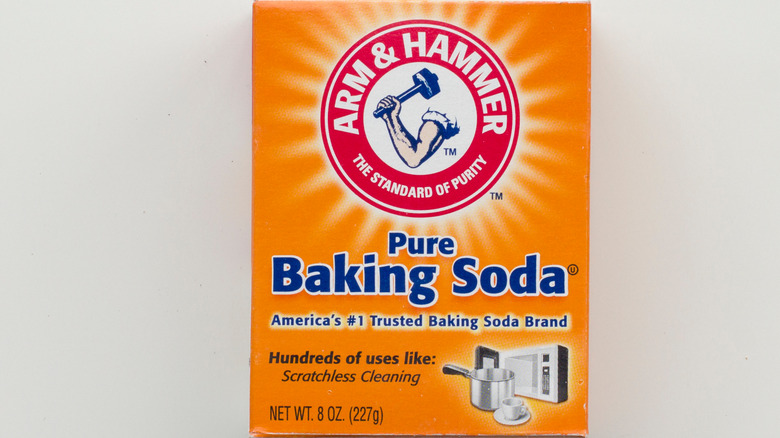People Ironically Connected To Famous Companies
For centuries, surnames have been a tool to help differentiate between people. As BBC News notes, they emerged in the English-speaking world in the 11th century and developed into a means of identifying a person by their place of origin, their family, or their trade. For example, someone with the last name of Baker may have originally been someone who, you know, baked things. Or someone with the surname of Johnson was, well, John's son.
These days, the original attachment to most surnames is no longer relevant. There is, however, a concept known as "nominative determinism," according to Mental Floss, and it exists when someone's name, sometimes their first in combination with their last, perfectly describes their job. For example, there's a bird-wrangling police officer in Portland named McCageor "Cage" Byrd. Or over in the U.K., Igor Judge was, as of 2011, the Lord Chief Justice of England and Wales.
In business, there are at least two interesting examples of people whose names somehow connected them to the company they were affiliated with.
Doug Bowser works for Nintendo
For those not familiar, Bowser, the dragon-turtle hybrid character seen above, has been a part of the universe of Nintendo video game characters for nearly four decades. According to Nintendo, he was created in 1985 to serve as the villain, intent on kidnapping the princess, in the original "Super Mario Bros." video game, and he's been in almost every game in the franchise since.
A solid 20 years before video game Bowser became a thing, a man named Doug Bowser was born in the U.S. He graduated from the University of Utah, according to the university's website, and went into the business world. After stints at Proctor & Gamble and then another video game company, Electronic Arts, he joined Nintendo of America in 2015, according to The Guardian, and became president of the division in 2019.
Of course, when the news was announced, according to Mashable, the internet had a field day with the Bowser character connection. Nintendo of America, as a company, certainly got the joke from the beginning. On his very first day with the company, someone snapped a photo of him, and if you look closely here, there's an Easter Egg: stuffed toys of two other Nintendo characters are tied up behind him, a reference to the character Bowser's villainy and fondness for kidnapping.
Armand Hammer once indirectly owned at least part of Arm & Hammer
When you're trying to get customers interested in your product, a catchy name and an equally catchy logo can do wonders for your branding. According to the company's website, brothers-in-law Dr. Austin Church and John Dwight began manufacturing bicarbonate of soda (baking soda), and they formed the company Church & Dwight in 1846. The famed Arm & Hammer brand emerged two decades later when Austin retired and his son, James, who ran a spice business, took his father's place. He brought with him the brand name and symbol, featuring the flexed arm holding a hammer, which served as a reference to Vulcan, the Roman god of fire.
A few decades later, in 1898, according to the book, "Armand Hammer: The Untold Story," Armand Hammer was born. Though the baking soda business was thriving at the time, Armand himself would later say that his name originated not with the cooking and cleaning product, but rather, with the symbol of the Socialist Labor Party of America (SLP), in which his father was a leader.
By the 1980s, Hammer had amassed a fortune in businesses not related to baking soda. Nevertheless, his name continued to be associated with the manufacturer, according to The Washington Post, so he figured he might as well buy the company. That didn't happen, however, though for a time he did own a considerable stake in Church & Dwight.


